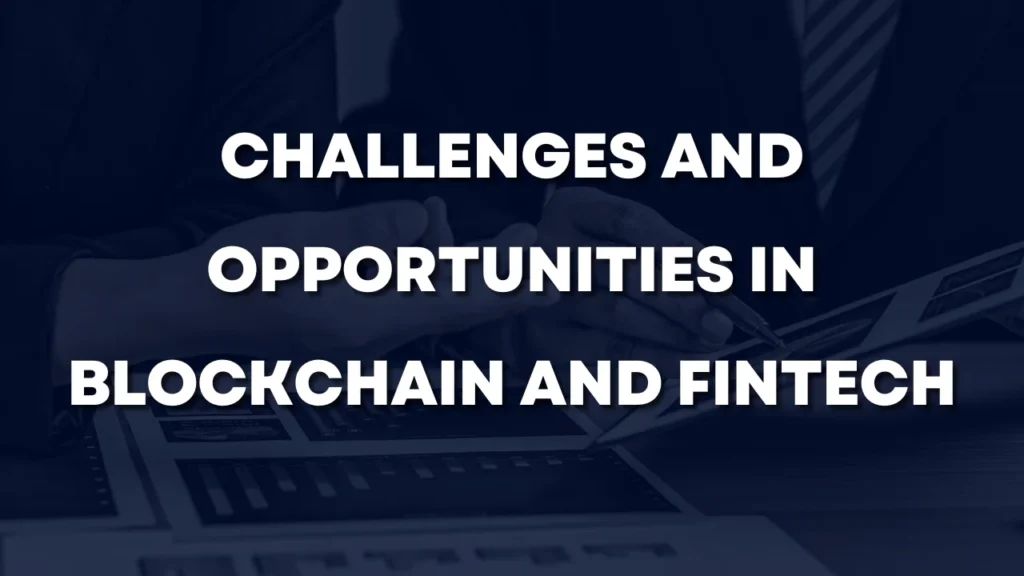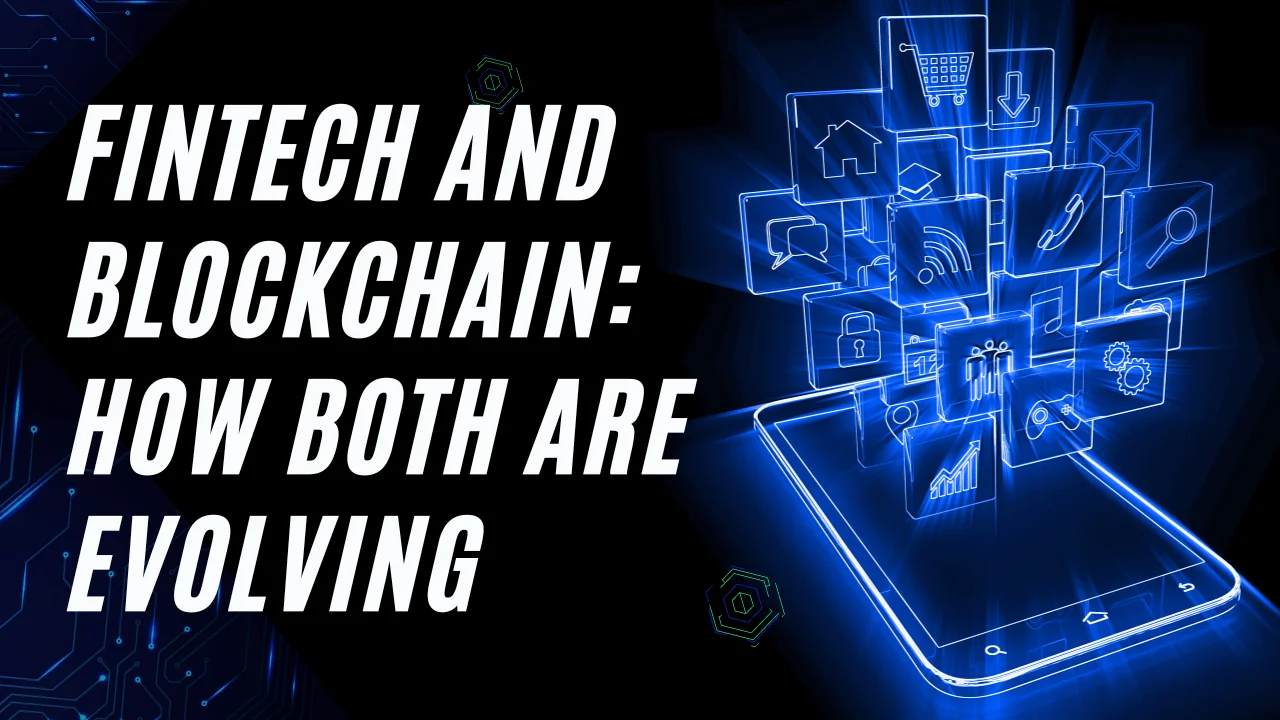Fintech and blockchain are driving change in the financial industry at a time when technology controls the rate and trajectory of global economic trends. Rather than being empty platitudes, these revolutionary technologies will underpin a new financial architecture that places an emphasis on openness, efficiency, and safety. Digital transactions are reshaping the banking and financial landscape, thanks to the combination of fintech’s innovative financial services and blockchain’s decentralized and immutable ledger.
If you are an entrepreneur, investor, tech enthusiast, or just interested in the future of finance and how fintech and blockchain are influencing it, then this article is for you. Learn more about the exciting combination of fintech and blockchain here, whether you’re looking for investment opportunities, ways to innovate at work, or just want to know what the future holds for financial transactions.
Blockchain’s Foundation in Fintech

Decentralized Finance (DeFi) Unleashed
DeFi is a revolutionary departure from conventional finance because it provides a blockchain-based financial system that is open, interoperable, and extremely accessible. This new way of thinking eliminates the need for middlemen like banks and credit unions in monetary transactions, which speeds up the process and reduces costs.
Empowering Secure Transactions
The unmatched security of blockchain is its fundamental characteristic. It safeguards transactions against fraud and cyberattacks by dispersing its operations over a network of computers. Knowing that the underlying technology protects against possible breaches gives fintech companies the confidence to conduct transactions.
Innovations and Blockchain Security Solutions
Advanced security solutions that strengthen fintech applications have been developed as a result of blockchain technology’s continuous evolution. Smart contracts, consensus algorithms, and cryptographic hashing all work together to make transactions more trustworthy and reliable, which raises the bar for financial safety.
Role of Cryptocurrency Exchange Platforms
Exchanges that facilitate the trading of digital currencies are essential nodes in the network of blockchain technology and financial technology. These sites show how blockchain technology can be used in real life to make transactions more secure and efficient, and they also make it easier to invest in digital assets.
Digital Wallets
Users are now able to safely store, send, and receive digital currencies thanks to blockchain technology, which has completely changed the way digital wallets work. These wallets provide users with unmatched ease of use and command over their digital assets, making them the backbone of fintech applications.
Smart Contracts and Automation
The innovative potential of blockchain in fintech is demonstrated by smart contracts, which are contracts that execute themselves according to the terms written into code. By eliminating the need for middlemen and automating routine contract processes, they make sure contracts are executed efficiently and transparently.
Challenges and Opportunities in Blockchain and Fintech

Regulatory Frameworks
The regulatory landscape is one of the biggest obstacles to fintech and blockchain integration. The need for flexible and all-encompassing regulatory frameworks that promote innovation while guaranteeing safety and equity is growing in tandem with the development of these technologies.
Blockchain in the Banking Sector
Blockchain technology has the potential to greatly benefit the banking sector by facilitating more efficient cross-border transactions, improving security measures, and reducing operational costs. Innovative solutions are needed to address the technical and regulatory challenges that come with integrating blockchain into legacy banking systems.
Impact of Blockchain on Market Growth
The expansion of the financial technology industry can be attributed, in large part, to blockchain technology. New financial products and services are encouraged to be developed and investors are drawn in by its ability to improve transaction speed, decrease costs, and increase security.
Overcoming Decentralized Network Security Challenges
Although blockchain technology provides improved security, it also presents unique challenges due to its decentralized nature. Constant innovation in cybersecurity measures is necessary to safeguard decentralized networks from ever-changing threats.
Fostering Blockchain and Fintech Partnerships
To fully capitalize on the opportunities presented by both blockchain and fintech, strategic alliances between these two industries are essential. Working together in this way can hasten technological advancement, boost sales, and provide all-encompassing answers to the changing financial sector’s problems.
Trends in Cryptocurrency Banking Services
Crypto Asset Management Evolution
The revolutionary potential of blockchain technology in the financial sector is demonstrated by the development of crypto asset management. Financial institutions are creating advanced tools to manage digital assets as investors diversify their portfolios to include them. Both individuals and institutions can optimize their investment strategies with these tools, which offer enhanced security features, real-time portfolio tracking, and strategic insights into market trends.
Integration of Crypto On-Ramp and Off-Ramp APIs
Crypto on-ramp and off-ramp APIs allow for the smooth incorporation of cryptocurrency transactions into conventional banking systems. Digital assets are made more accessible to more people through these APIs, which make the conversion between fiat and cryptocurrency easy. Not only does this make trading cryptocurrencies easier, but it also improves the user experience by incorporating these services into well-known banking apps.
Blockchain’s Role in Enhancing Financial Transparency
With blockchain technology, financial transactions are now more transparent than ever before. A transparent audit trail can be created because every transaction recorded on a blockchain is both publicly accessible and immutable. Because it gives a clear, immutable record of transactions, this openness is great for regulatory and compliance reasons and also helps users trust the system.
Decentralized Applications (DApps) Transform Financial Services
Decentralized applications (DApps) are a game-changer for the financial technology industry’s use of blockchain. Financial services such as decentralized exchanges and lending/borrowing platforms are available through DApps, which operate on a decentralized network. By making banking services available to those who were previously unable to afford them, this not only makes transactions cheaper, but it also makes the financial system more welcoming to all.
Potential of Smart Contracts in Automating Financial Services
By replacing human error with automation, smart contracts have the potential to radically alter the financial services industry. Smart contracts streamline business processes by reducing operational costs and increasing efficiency, whether it’s managing agreements between parties or executing trades. They have the ability to revolutionize the financial technology industry by going beyond basic transactions to intricate financial instruments.
FAQs
What is DeFi?
Decentralized Finance (DeFi) refers to financial services built on blockchain technology that operate without central financial intermediaries, such as banks or brokerages.
How do cryptocurrency exchange platforms work?
Cryptocurrency exchange platforms facilitate the buying, selling, and trading of digital currencies by matching buyers with sellers, often providing secure and user-friendly interfaces for transactions.
What are smart contracts?
Smart contracts are self-executing contracts with the terms of the agreement between buyer and seller directly written into lines of code, which automatically enforce and execute the terms of a contract.
How does blockchain enhance financial transparency?
Blockchain technology provides a decentralized and immutable ledger of all transactions, ensuring that financial operations are transparent, traceable, and free from tampering.
What are the benefits of using digital wallets?
Digital wallets offer a secure, convenient, and efficient way to store, send, and receive digital currencies, enabling users to manage their crypto assets with ease.
Also Read: 4th Generation Blockchain: All You Need to Know
Conclusion
The financial industry is being redefined by the integration of fintech and blockchain. The convergence of these technologies ushers in an era of unprecedented speed, security, and accessibility in financial transactions as we forge ahead into the digital frontier. Rather than being insurmountable, the obstacles that are ahead can be seen as chances for growth, collaboration, innovation, and innovation. One thing is certain as we delve deeper into the immense possibilities of fintech and blockchain: the future of finance is here, and it’s bright.

Timothy Jensen is an expert writer who specializes in the world of cryptocurrencies, including blockchain technology and Bitcoin. He has a passion for explaining complex topics in an easy-to-understand way. Timothy’s work aims to demystify the digital currency landscape for his readers.

